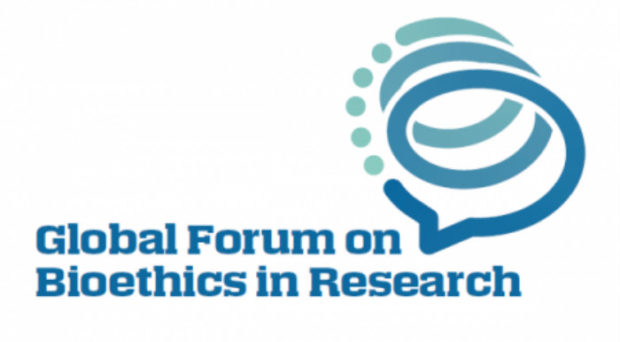
The topic was chosen because data and sample sharing from health research and clinical care have been increasingly promoted by research funders and journals. The meeting was structured around presentation of case studies, grouped into themes: Respecting participants and communities; Advancing good governance and Promoting equity. Four additional presentations focused on guidance and policy. The cases and policy papers were identified through an open call and were judged competitively.
Here we discuss issues that permeated across themes.
What is equitable sharing?
Dr Susan Bull, who gave a keynote presentation asked how data and samples, especially those generated in low- and middle-income settings can be shared equitably. She stressed that significant challenges around promoting equitable sharing have not been fully addressed. We currently lack a robust conception of what equitable sharing is and lack empirical data about what the costs, benefits and harms of data-sharing practices are. Professor Karen Barnes talked about the initiatives of the Worldwide Antimalarial Resistance Network to “level the playing field” for data sharing by malaria researchers in endemic countries. She said that data contributors are invited to collaborate in the secondary analyses and be co-authors on publications arising from the work.
Professor Akin Abayomi gave the second keynote and drew attention to H3Africa, which aims to promote equity through its data and sample release policy. Researchers on the African continent – or who collaborate with African scientists – have priority access to samples and the H3Africa access committee could reject proposals that do not have enough African capacity building built into the project. A moratorium is also in place for release of samples to outside investigators to allow time for publication of the H3Africa study for which the samples were collected.
Consent
Participants discussed the different models of consent. While many agree that broad consent is acceptable provided appropriate governance is in place, others view that specific consent should be employed in some settings. In Brazil, regulations mandate that consent is obtained from the participant every time a sample from a biobank is used for research. For data collected for health care, specific consent is required if these data were to be repurposed for research. Dr Nicki Tiffin confirmed this in her qualitative study with patients in the Western Cape Province of South Africa. Waivers of consent were discussed in the context of legacy data and samples.
Community and public engagement
Several speakers advocated for more community and public engagement around data sharing and biobanking. Engagement is not merely about education but should aim to identify the interests of all stakeholders involved so this understanding can be used to determine culturally appropriate approaches for data sharing or biobank procedures. Participants felt that engagement should include two-way communications with patients, research participants, communities and minority groups such as indigenous populations. Dr Agueda Munoz del Carpio Toia, explained her engagement work with Aymaras leaders from the Peruvian highlands about biobanking. Professor Michael Parker cautioned what while community engagement is important, it may not provide all the answers to data and sample sharing. Efforts must be made to ensure that there is good governance.
Governance
An important element to ensure anticipated benefits and mitigate potential harms is governance. But what is good governance? Participants agreed that consent and community engagement have a role to play but a broader system is required to build and maintain trust. The system needs to take account of – and balance – the benefits, interests, and protections afforded to participant, communities and researchers. How do we ensure fairness to LMIC researchers to prevent them being relegated to data collectors alone? GFBR participants suggested that one solution might be to enhance the capacity of LMIC researchers in the area of data science. Some participants said that in some countries such as India the capacity (e.g. for data science) already exists but it has not been harnessed. Others suggested that the first step is to develop an institutional data sharing policy with clear aims and data request procedures.
Sharing and usage
It became apparent in the discussion that shared data are being under-used by LMIC researchers but also, there is low usage in general. This speak to the need to facilitate the use of shared data and samples – curation alone is not sufficient. It could be a role for funders to ensure the programmes they fund are sufficiently resourced so they can both promote and facilitate access to achieve maximum benefit.
Conclusion
Data and sample sharing is a complex issue in an imperfect world where ideals of ‘consent’, ‘community engagement’ and ‘governance’ will rarely be achieved. The cases presented at the meeting highlighted that there is no ‘one-size-fits-all’ and any data and sample sharing approach will need to be context specific. GFBR participants are selected competitively, based on their potential to contribute to the discussions and achieve impact after the meeting. Participants are encouraged to report and discuss the meeting recommendations in their home countries and regions. Fellowships are available for GFBR participants to explore issues that arise during the meeting in greater detail, establish new collaborations, and develop new ideas for resolving issues that could not be resolved at the meeting itself.
BMC Medicine is launching a new article collection: ‘Beyond Big Data to new Biomedical and Health Data Science: moving to next century precision health’. We are welcoming submissions for this exciting collection with four exceptional Guest Editors. We invite manuscripts and front matter content looking at data-driven approaches for patient care with a strong focus on policy making, clinical implementation and public health importance.
Comments